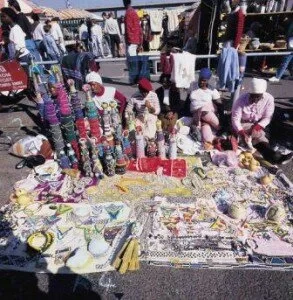
Informal businesses will soon have access to business support services that were previously inaccessible.
A thousand informal businesses are set to benefit from a pilot project launched last month by the Department of Trade and Industry (DTI) in Port St John’s.
The Informal Traders Upliftment Project (ITUP), as the pilot project is known, is a 50/50 partnership between the Wholesale and Retail Sector Education and Training Authority (W&R Seta) and the DTI, and forms part of government’s National Informal Business Upliftment Strategy (Nibus).
The strategy seeks to provide informal businesses with business support that was previously only accessible to registered businesses.
This will be provided in a phased approach. Nibus comprises two parts: the Shared Economic Infrastructure Facility, which will see upgrades to buildings and the like that will be used by informal businesses, co-operatives and small businesses.
The other part – the Informal Business Upliftment Facility, which kicked off with the launch of ITUP – will prioritise women, young people and people with disabilities who own businesses based in townships, rural areas and the like, with much-needed business support.
According to Stephen Umlaw, project manager for Nibus at the DTI, the purpose is to identify areas in the country where informal traders such as street vendors and spaza shops can be selected and trained so that they can run flourishing businesses.
“We want to identify, train, coach, mentor and provide infrastructure support to 1 000 informal traders in all nine provinces over an 18-month period in partnership with relevant stakeholders,” says Umlaw.
Nationally, 1 000 informal traders are expected to benefit – just over 100 per province.
He says the selected traders will be categorised according to the following retail subsectors:
Street traders – training and support. Spaza shops or home-based retail businesses – training and refurbishment.
Township or rural general dealer shops – training and refurbishment.
Permanent and temporary markets (for instance, Kwa Mai-Mai) will receive training and infrastructure upgrade.
Informal Traders Organisations – organisational management skills.
“The criteria is that the trader needs to be South African and must have proof of trading,” says Umlaw.
Beneficiaries will be selected by a team that consists of people from the municipalities, informal trader associations, among others.
“To ensure fairness and transparency, traders will be selected through the involvement and participation of municipalities and local community forums that will supply lists of eligible participants for this programme,” says Umlaw.
Clear guidelines will be drawn up and agreed upon during the course of the project, as this forms part of the learning curve of the pilot.

